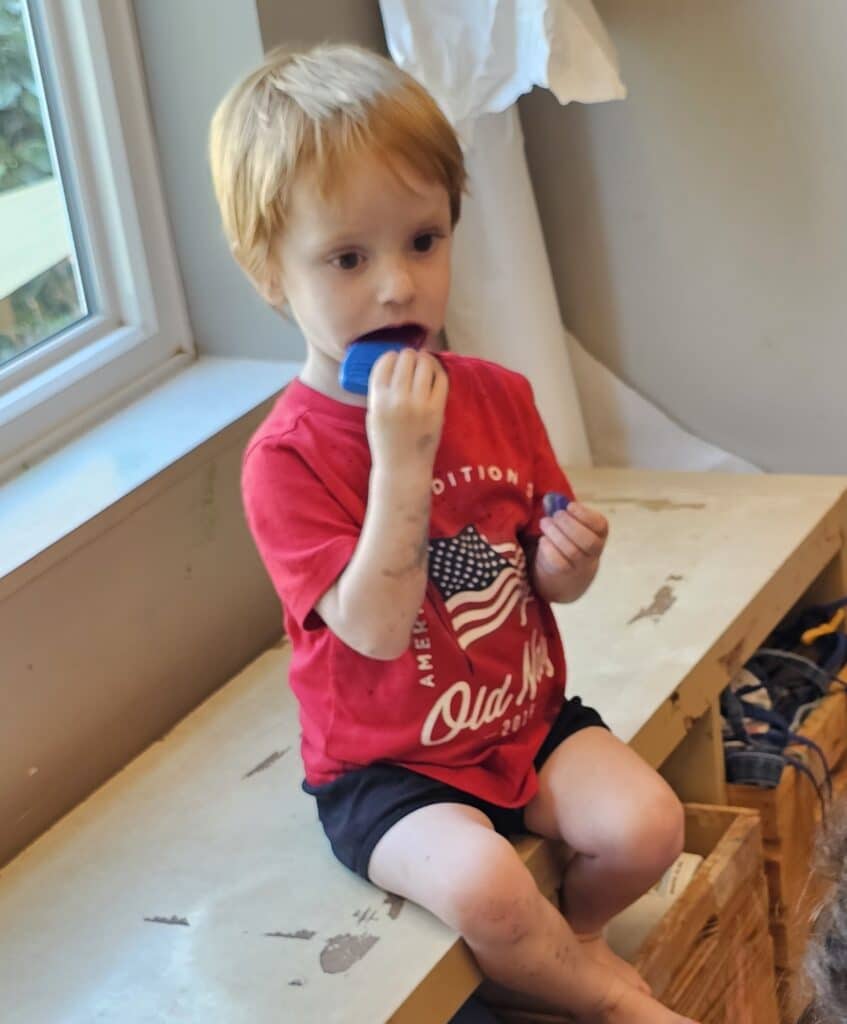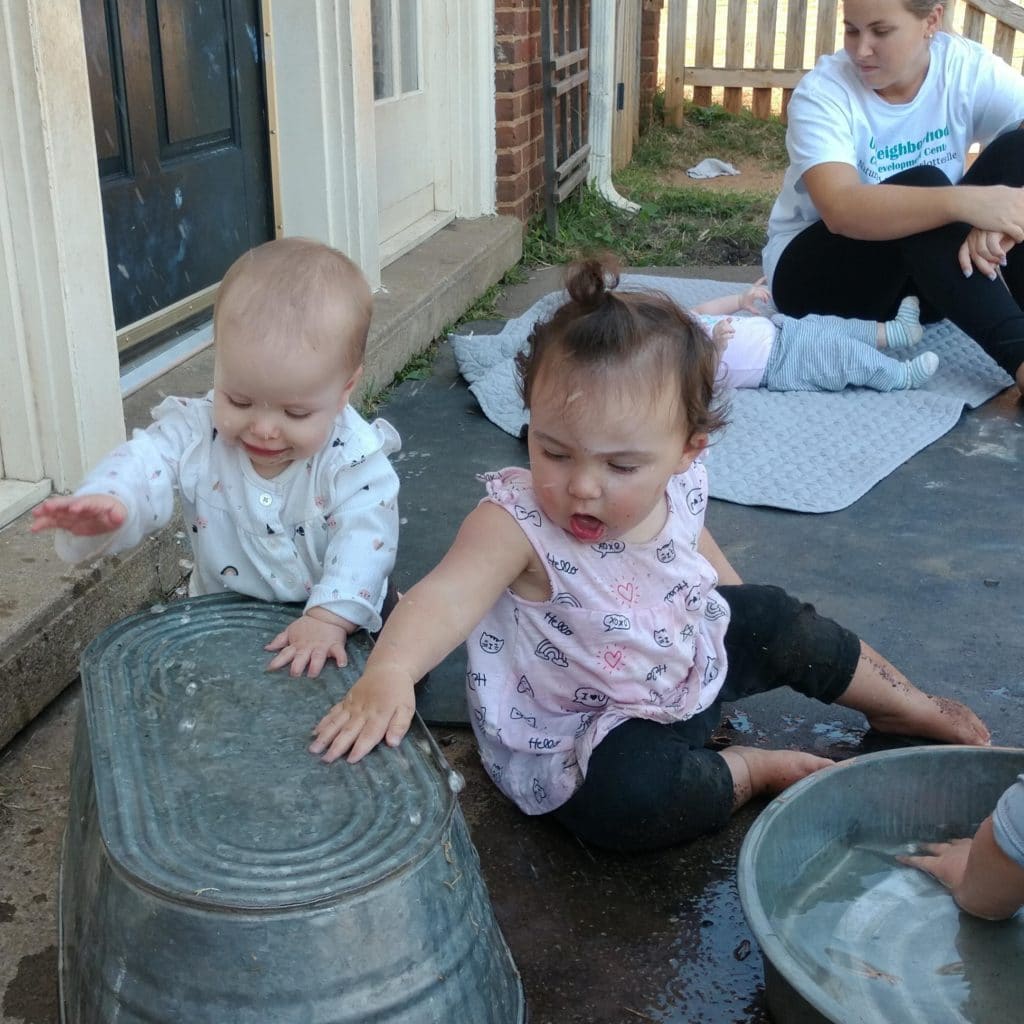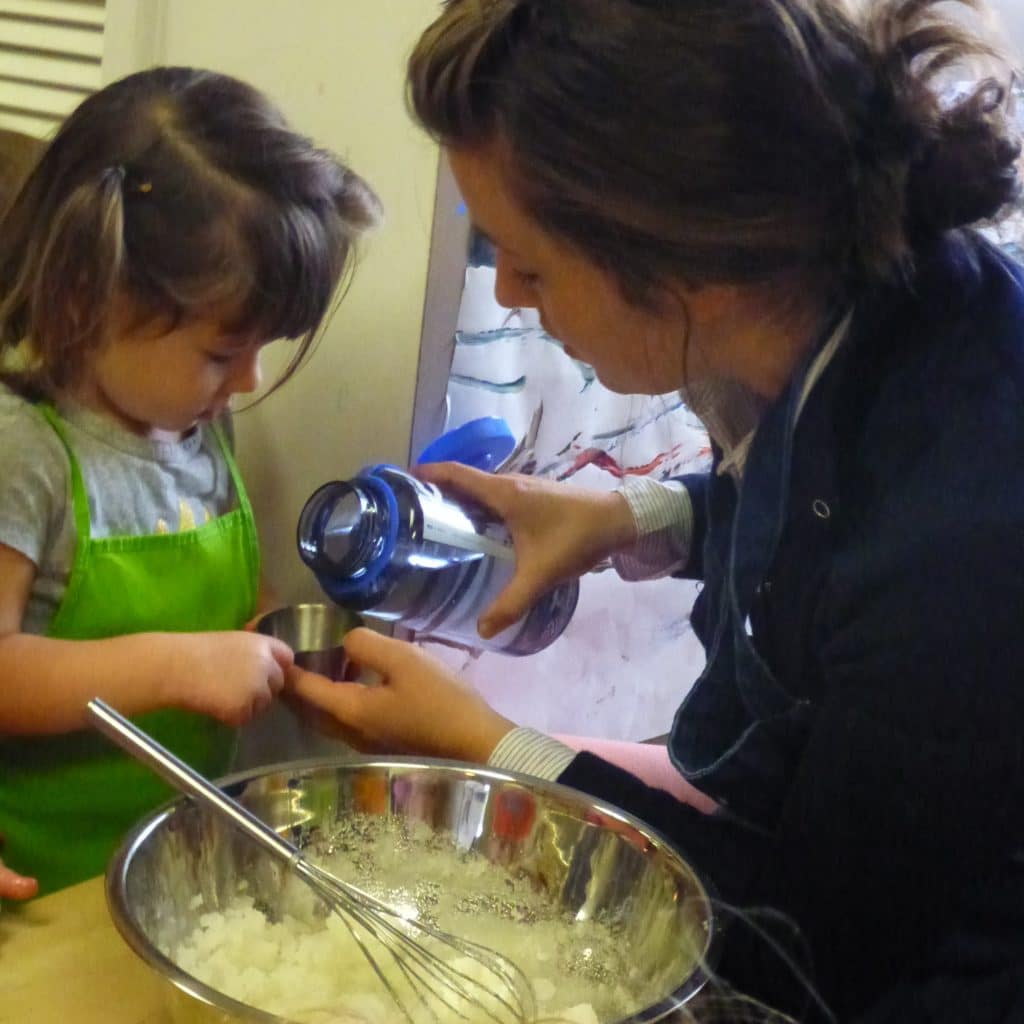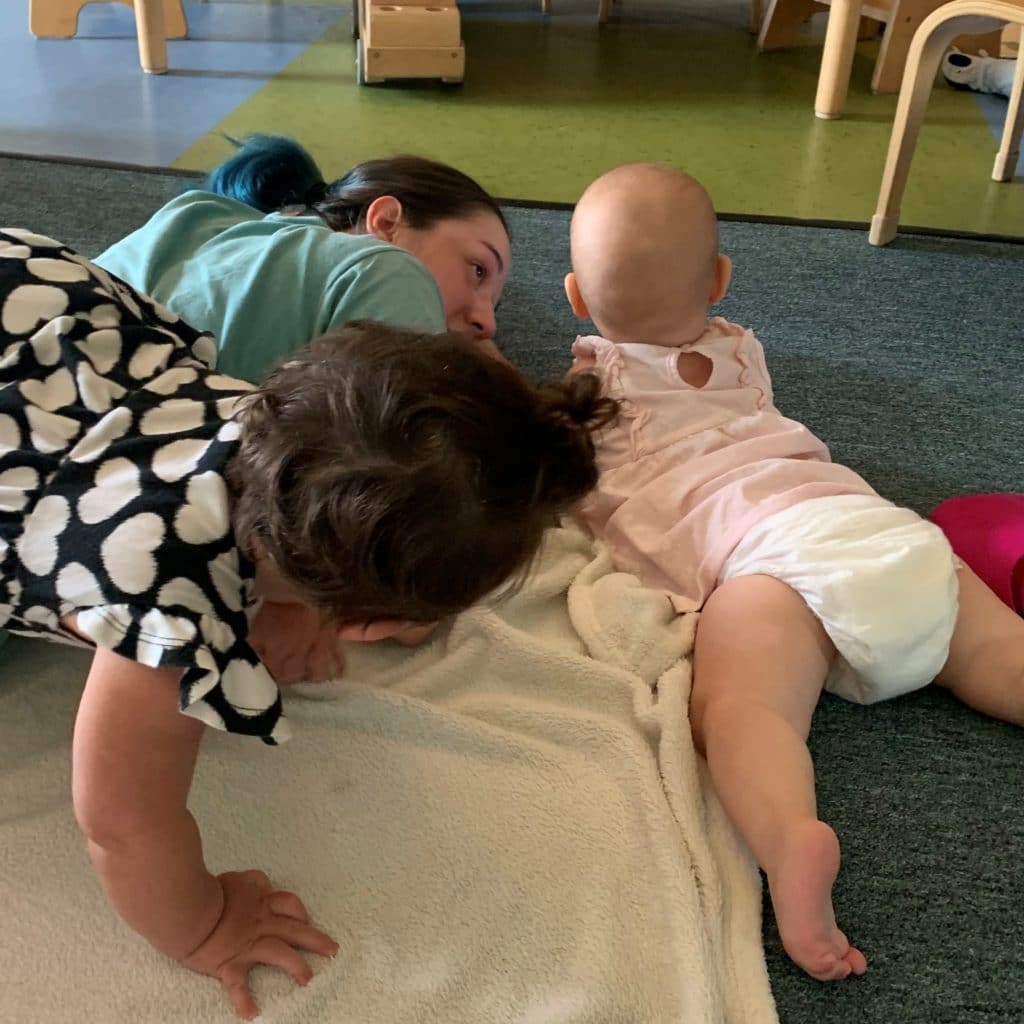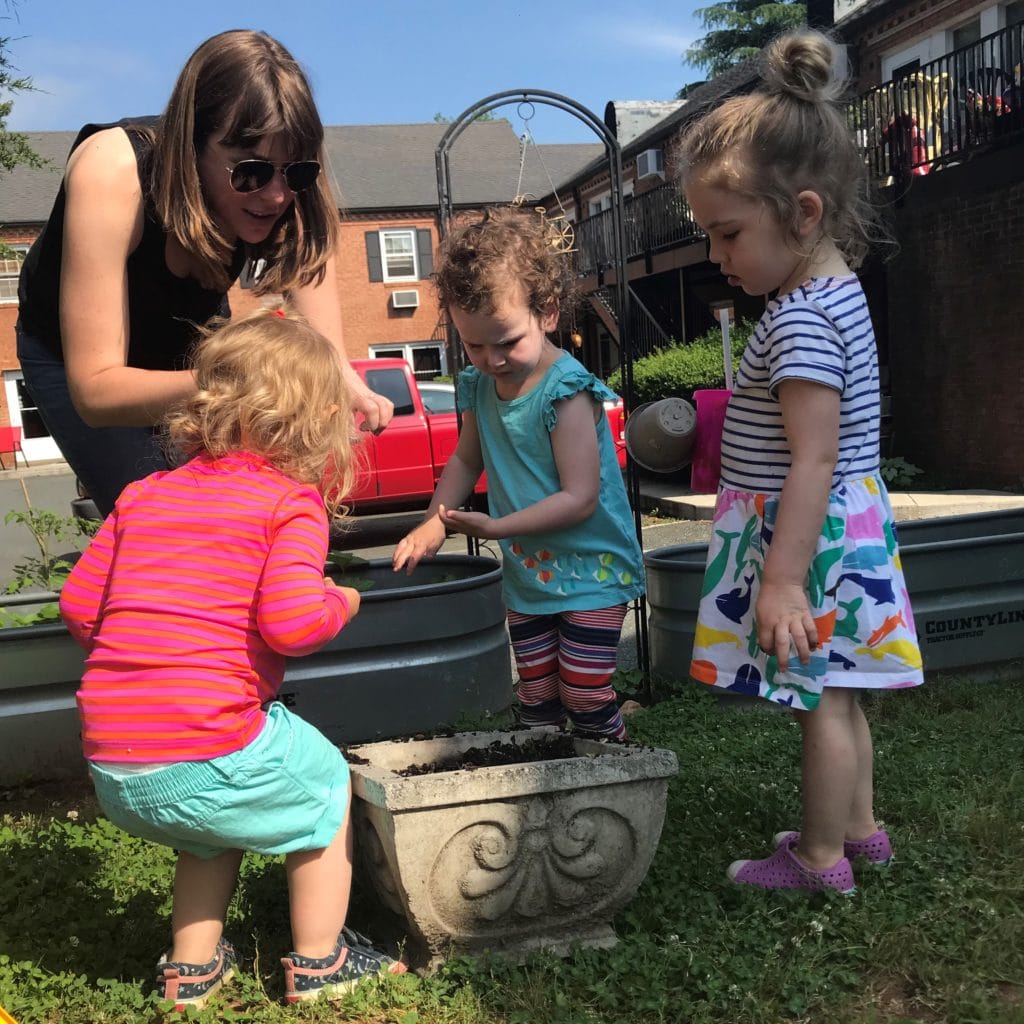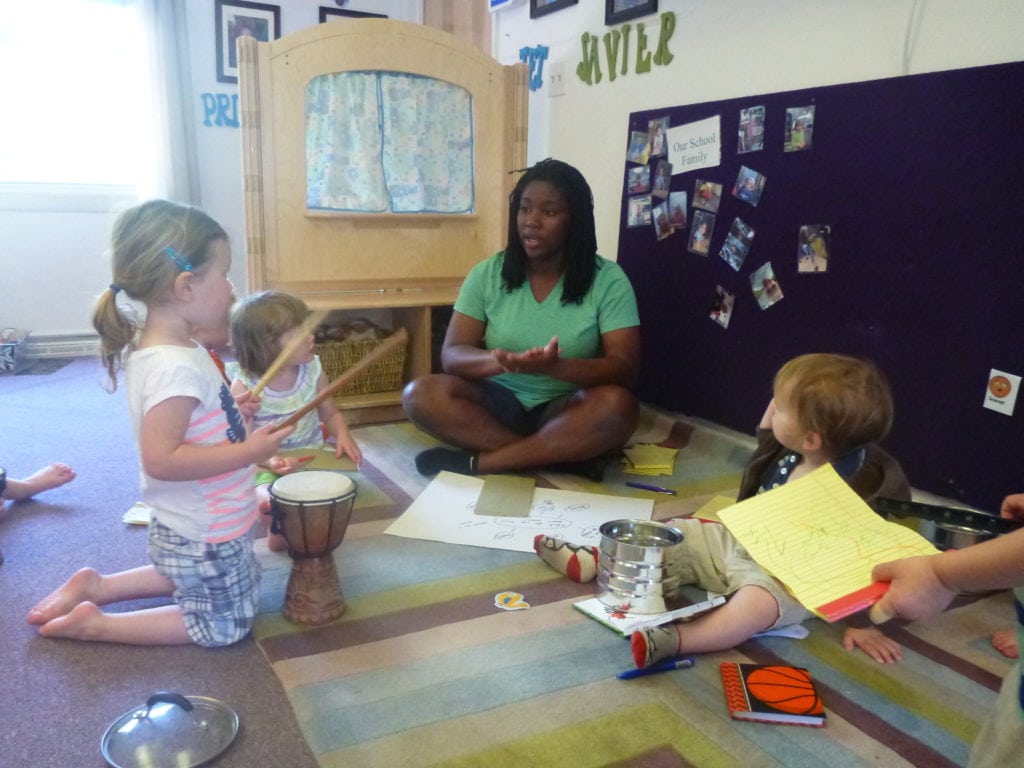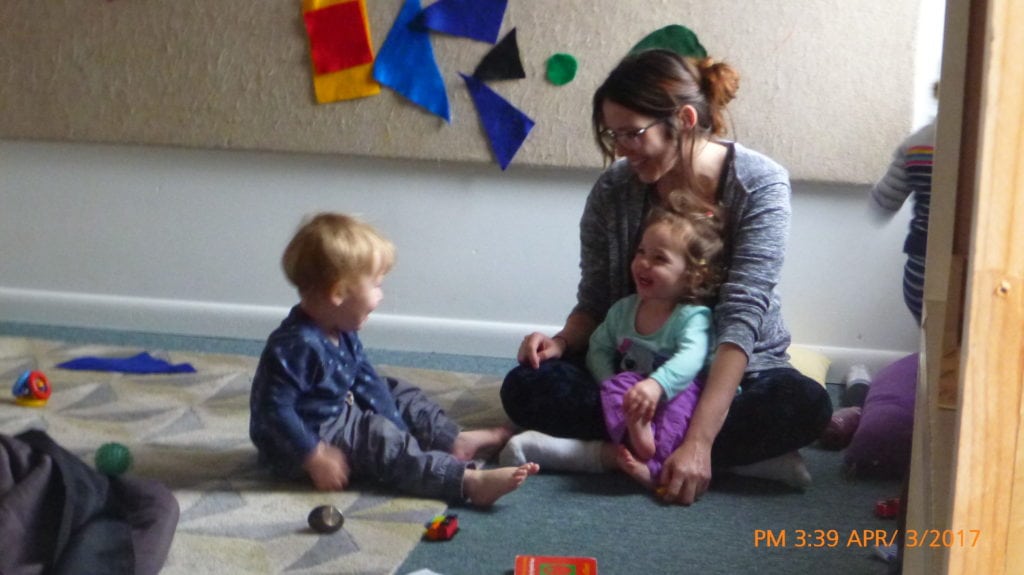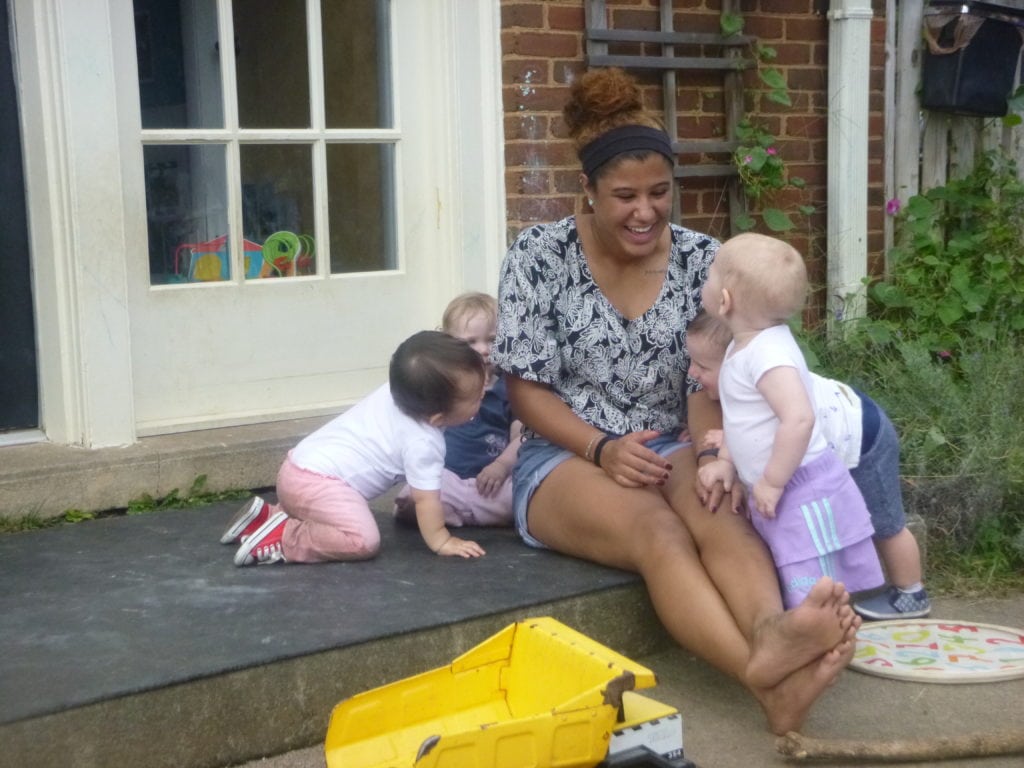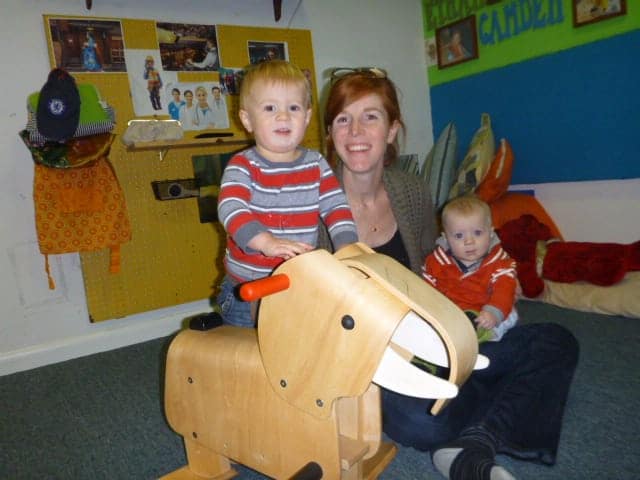Child Care
From the ONCDC Blog
I was reading an interesting early childhood book entitled The Discontented Baby that challenged my usual view of children as overstimulated. Immediately, I disagreed with the author’s assertion that children are under-stimulated, thinking of all the well-meaning parents shaking toys in front of babies’ faces, and carting toddlers to enrichment activities. I saw overstimulated not…
Our Neighborhood practices continuity of care, a system of keeping children and teachers together from when they enter child care until age three. This practice is backed by research that tells us there are many benefits. Continuity of care promotes healthy brain development, allows caregivers a deeper knowledge of the children, and reduces stress on…
Do you ever find yourself exhausted at the end of the day? You spent all day thinking of ways to keep your child “occupied?” Maybe you’re thinking that your job as a parent means you need to constantly provide activities and materials for your child. Good news! You’ve been spending all of your time to…
Our Neighborhood practices continuity of care, a system of keeping children and teachers together from infancy until age three. This practice is backed by research that tells us there are many benefits. Continuity of care promotes healthy brain development. It allows caregivers a deeper knowledge of the children and reduces stress on children and families.…
Basic math that is missing from the high-quality child care discussion. Infants need one teacher for every four children. One teacher’s salary at $15.00 per hour is $31,200 a year. That is $7,800 per infant annually. The federal government defines affordable care as care that costs no more than 7% of a…
Preschool should be ages three to eight not ages three to five. Children under age eight are in what researchers call a sensitive period of growth. Our public school system starts at age five so the majority of families just assume between five and six preschool ends and Kindergarten begins. Once in school children are…
In some discussions and writing, you have referred to programs as academic. Parent’s Ask: It seems like you refer to academic as a negative thing, why? When would you have children in a more academic setting? Our Neighborhood believes children learn through play. We are social constructivists who believe children learn best in the context…
High-quality early childhood education is garnering media attention, but figuring out what quality is can be hard for families. The research into what leads to great early childhood experiences is mixed; lower child-to-teacher ratios, stringent teacher credentials, and beautiful environments don’t necessarily equal a high-quality program. The best measure of quality in early childhood programs…
Each state has their own requirements for operating a child care center. There is no uniform child care regulations so it is important to understand the regulations in your state. Virginia – Child Care Licensing In Virginia, child care centers are licensed by the Department of Social Services (DSS). Licensing regulates basic health and safety…
There are lots of articles about questions to ask and what to look for when you’re touring a preschool program. Unfortunately there is a lot of misinformation about what high-quality early childhood education really looks like. The research into what leads to great early childhood experiences is mixed; lower child-to-teacher ratios, stringent teacher credentials, and…

